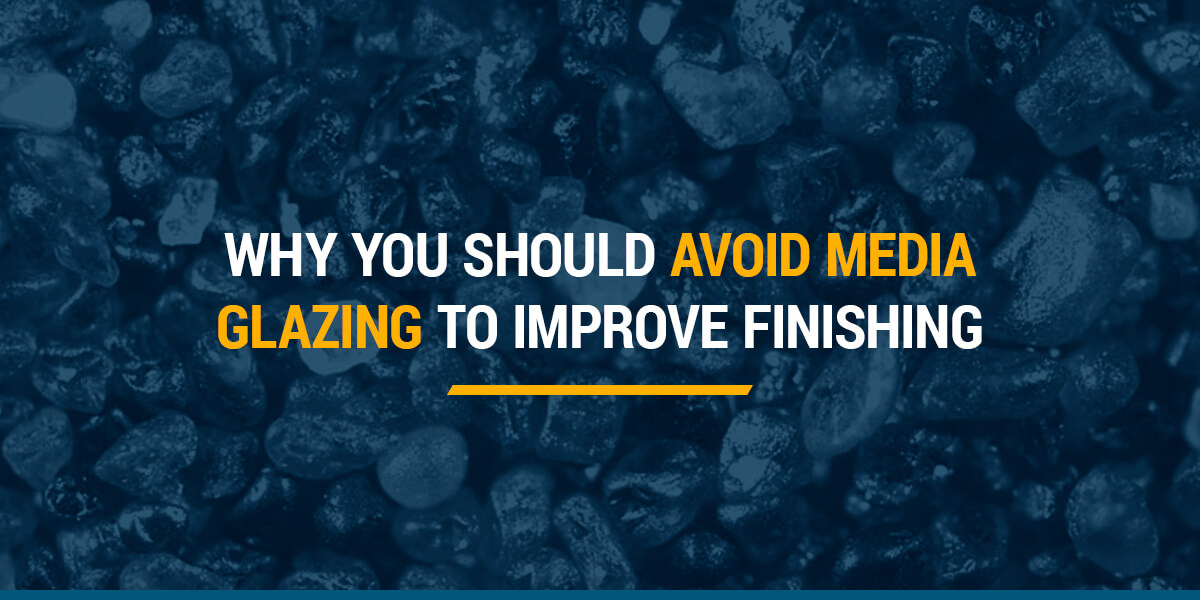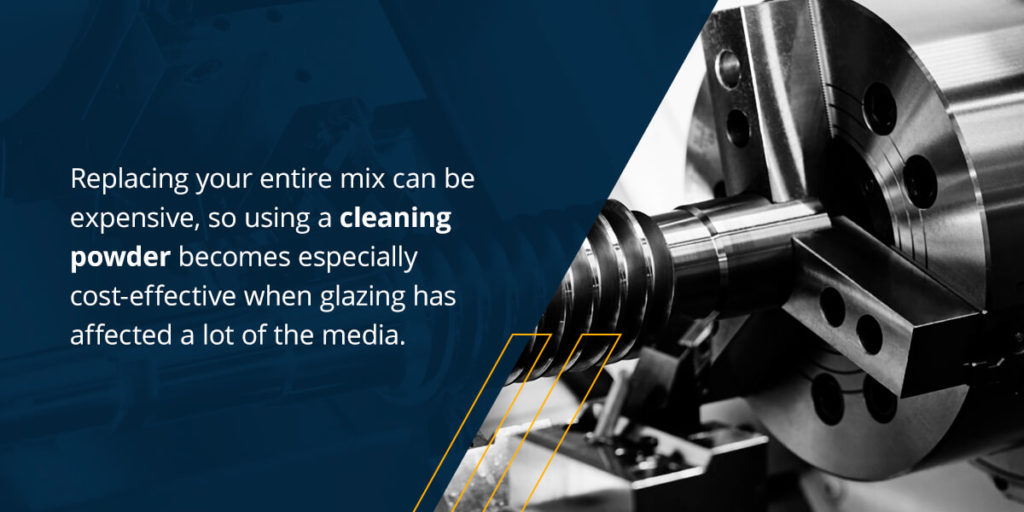
Why You Should Avoid Media Glazing to Improve Finishing
Updated: March 12, 2024Abrasive media plays a crucial role in surface finishing across many industries. Whether you're using ceramic, plastic, or steel media, the goal is to deburr, smooth, clean, and polish workpieces effectively. However, over time, a common issue known as media glazing can reduce the performance of your media, leading to uneven finishes and lower productivity. Understanding what causes glazing and how to prevent it is essential for maintaining high-quality results that meet your customers' expectations.
What Is Media Glazing?
Media glazing occurs when fine metal particles and debris from the workpiece accumulate on the surface of the abrasive media. This buildup happens during the vibratory finishing process, where the media rubs against the workpiece to remove imperfections. As these particles coat the media, they dull its cutting ability, reducing its effectiveness. Instead of producing a consistent finish, glazed media may leave behind a burnished or uneven surface, and even transfer contaminants to the workpiece.
The consequences of media glazing are significant. It can increase cycle times, cause workflow delays, and lead to rework due to inconsistent results. On the flip side, preventing glazing ensures smoother operations, better finish quality, and improved overall efficiency. By addressing this issue early, you can maintain the integrity of your finishing process and avoid costly downtime.
What Causes Glazing?
Several factors can contribute to media glazing. Here are some of the most common causes:
- Low Compound Concentration: If the compound used in the finishing process is too weak, it won’t properly clean the media, allowing debris to build up.
- Inadequate Water Flow: Proper water flow helps flush away metal particles and dirt. A low flow can trap contaminants, which then coat the media.
- High Part-to-Media Ratio: When there are too many parts relative to the media, especially with oily or greasy materials, glazing becomes more likely.
- Incorrect Media Size: Using media that's too small can clog drains and prevent proper water drainage, causing dirty water to remain on the media surface.
6 Tips to Prevent Media Glazing
Preventing media glazing requires attention to detail and proper maintenance. Here are six practical steps to help you avoid this issue:
1. Use the Right Compound for Your Material
Soft metals like copper, brass, aluminum, and certain types of steel are more prone to glazing. Choose a compound that’s compatible with both your media and the material being finished. The right mix ensures effective cleaning and prevents buildup.
2. Maintain the Correct Compound Concentration
Compound concentration should typically be between 0.7% and 1%, depending on the system size and water volume. Too little compound can lead to poor cleaning and increased glazing, while too much may cause unnecessary costs.
3. Keep Drains Clear and Free of Clogs
Clogged drains can trap debris and cause water retention, which contributes to media glazing. Regularly check and clean your drains, or use frequent freshwater changes if necessary.
4. Ensure Adequate Water Flow
Good water flow is essential for removing debris and keeping the media clean. Open drains with sufficient flow will help maintain a cleaner environment and improve finishing results.
5. Monitor Your Wastewater
If your wastewater appears dark or concentrated, it may indicate excessive contamination. This is often seen in processes involving oily materials or high part-to-media ratios. Regular monitoring can help identify issues before they worsen.
6. Check and Replace Media as Needed
Over time, media can degrade or become too small to function properly. Schedule regular checks and replace any media that shows signs of wear or glazing. This proactive approach helps maintain consistent performance.
How to Restore Glazed Media
If your media has already started to glaze, don’t worry—there are ways to restore it. One effective method is to add an abrasive cleaning powder to the media and run the tumbling machine for several hours. Afterward, flush the media with water to remove any remaining residue. This process can extend the life of your media and save you money compared to replacing the entire batch.

Contact Finishing Systems Today
Media glazing is a common challenge, but it’s manageable with the right knowledge and tools. At Finishing Systems, we specialize in providing solutions to optimize your finishing processes. Whether you need advice on preventing glazing or want to learn more about our products, we’re here to help. Contact us online today to get started.
Ningbo Yinzhou Leisheng Machinery Co.,Ltd , https://www.nblscasting.com